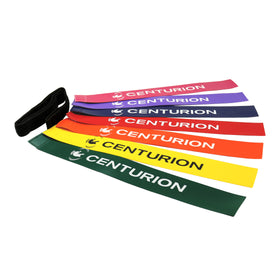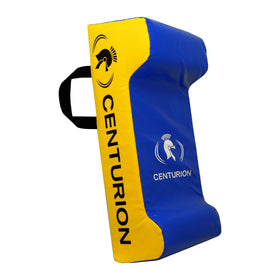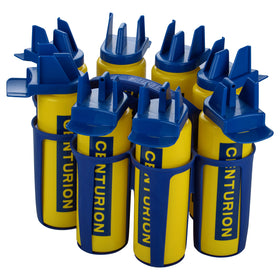Rugby Blog
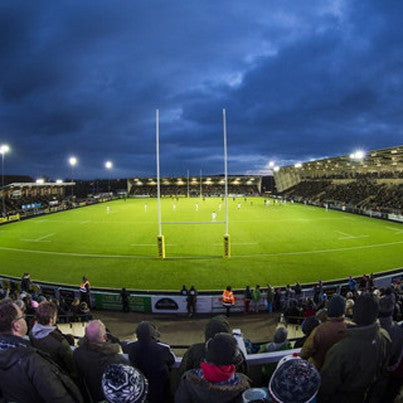
History of the Newcastle Falcons
by Leana Kell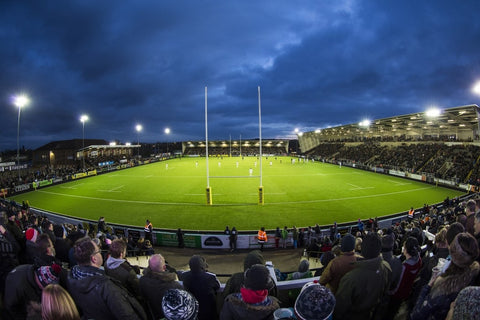
The Newcastle Falcons are the most successful club in northern England, winning the premiership once as well as four additional domestic cups. They are part of the English rugby union team and currently play in the English Premiership.
Newcastle Falcons has been a key part of the North East for over a century and has produced some of the finest talents to include players such as Jonny Wilkinson, Jamie Noon, Mathew Tait, Toby Flood, Dave Wilson and Geoff Parling
For more than 100 years, the club was known as Gosforth Football Club, only changing its name in 1990 following the move to Kingston Park . Below, Centurion takes a look at the history of the Newcastle Falcons.
The Early Years
The Newcastle Falcons was originally formed as the Gosforth Football Club in 1877 by a group of Old Boys from Durham school, with the very first match taking place in November of that year. The club maintained links with Durham school until the 1990s by playing in the school's colours of green and white hoops.
For the first 70 years, the club enjoyed little success. With no permanent home, the Falcons relied on playing local matches in a variety of venues to include Ashburton Meadows, South Northumberland Cricket Ground and Regent Road. Following a serious loss of members during the two world wars, the Gosforth club very nearly folded.
North Road
After the war in the late 1940s, Gosforth officials focussed on raising a significant amount of money in order to purchase grounds for the club, and by 1955, the hard work finally paid off when the club moved to their first official premises, North Road, where they remained until 1990. The new premises immediately raised the profile of Gosforth and the team's performance began to improve at local and national level.
1970s & 1980s
In the 1970s, the club was captained by Jack Rowell which saw the Newcastle team enjoy some of their most successful matches to date, wining two John Player Cups against Rosslyn Park in 1976 and defending the title against Waterloo in 1977 in a 27-14 victory. In 1981, the club reached the final again in the John Player Cup but lost out to Leicester, marking the start of a disappointing decade for the club. But a major transition was on its way.
Kingston Park Stadium
In 1989, Gosforth sold the North Road ground for £1.7 million and subsequently purchased the Newcastle Chronicle and Journal sports ground at Kingston Park for only £55,000. After 45 years at North Road, the club moved to Kingston Park and changed its name to Newcastle Gosforth. Gosforth Rugby Football Club continued as an amateur side working in partnership with Northumbria University.
Kingston Park stadium currently holds 10,200 spectators and is the second smallest stadium in the Aviva Premiership. The stadium comprises three modern stands, the open air North standing Terrace, the enclosed South Stand Terrace - where the loudest fans traditionally stand and sing, and the all-seated West Stand. The Falcons also retain the original Gosforth East stand complete with green and white seating (Gosforth colours).
The Professional Era
In 1992/93, Newcastle celebrated coming top of division two, and two years later, under the directorship of Rob Andrew (former captain of London Wasps) they were promoted to the Guinness Premiership.
In 1995, just before the start of the professional era, Newcastle United football chairman Sir John Hall secured the club's finances following a long period of financial instability and with his backing, Newcastle became the first fully professional rugby union in the world. Renamed the Newcastle Falcons and replacing the club's original green and white colours for black and white stripes, the club became a force to be reckoned with.
At the end of the 1997/98 season, just one year after promotion to the Premiership, the Falcons exceeded all expectations taking the Premiership title and celebrating their best year ever. Their phenomenal success prompted club owner John Hall to sell the club in 1999 for a 'nominal' sum in to local businessman Dave Thompson.
The Noughties
 Under Thompson, the Newcastle Falcons began the new millenium stronger than ever, winning two Powergen Cups. The first in 2001 beating the Harlequins FC 30-27 and then in 2004 they won 37-33 against the Sale Sharks. The arrival in 2004 of legendary Wallabies full-back Matt Burke brought the club further success. Playing alongside England legend Jonny Wilkinson during the 2004/2005 season the Falcons recorded their best ever Heineken Cup performance to date by winning their pool and progressing to a quarter-final tie against Stade Francais in the Parc des Princes.
Under Thompson, the Newcastle Falcons began the new millenium stronger than ever, winning two Powergen Cups. The first in 2001 beating the Harlequins FC 30-27 and then in 2004 they won 37-33 against the Sale Sharks. The arrival in 2004 of legendary Wallabies full-back Matt Burke brought the club further success. Playing alongside England legend Jonny Wilkinson during the 2004/2005 season the Falcons recorded their best ever Heineken Cup performance to date by winning their pool and progressing to a quarter-final tie against Stade Francais in the Parc des Princes.
In August 2006, Rob Andrew left the Falcons to take charge of the England team ahead of the 2007 World Cup. Subsequently, John Fletcher, a former England centre, became director of rugby at the Falcons. In 2007/08, All-Blacks' Carl Hayman signed for the Falcons in a deal that reportedly saw him become the highest paid Rugby Union player in the world, but the addition of the star player did not bring much luck to the club who saw the departure of many key players due to consistent underachievement. The Falcons suffered seven consecutive Premiership defeats as well as a European Challenge Cup semi-final defeat against Worcester Warriors.
The end of the 2008/09 season saw the Falcons reach another European Challenge Cup quarter final before losing to Saracens and finishing 10th in the Premiership. The season marked the last for Jonny Wilkinson who left the club for RC Toulonnais along with a large outflow of talent to include British and Irish Lions star Geoff Parling, Phil Dowson, Dave Wilson and Tom May.
Following the loss of so many key players, the Falcons struggled to maintain the quality of play and in May 2010, Steve Bates was replaced by first team coach Alan Tait. Despite the Falcons reaching the Anglo-Welsh Cup final before losing to Gloucester 34-7, they finished their worst ever Premiership with just 23 points (four wins), and only narrowly missed relegation. By the end of the 2011/12 season, the Newcastle Falcons were relegated from the Premiership, prompting many of the remaining key players to leave.
The return to the Premiership
In 2013, the Newcastle Falcons returned to the Premiership following a season in the RFU Championship. The subsequent re-signing of Rory Clegg and Kieran Brook indicated that talent was returning to the Falcons and more signings were soon to follow to include former Scotland and Lions scrum half Mike Blair , Saracens flanker Andy Saull, Scott Lawson from London Irish and former Scotland fly half Phil Godman. Despite a challenging season for the Falcons, they managed to retain a place in the Premiership for 2014/15.
Further key signings were to follow enabling the Falcons to finish the season in a respectable 11th place with a points total of 34.

